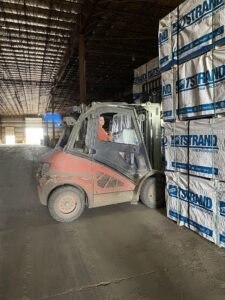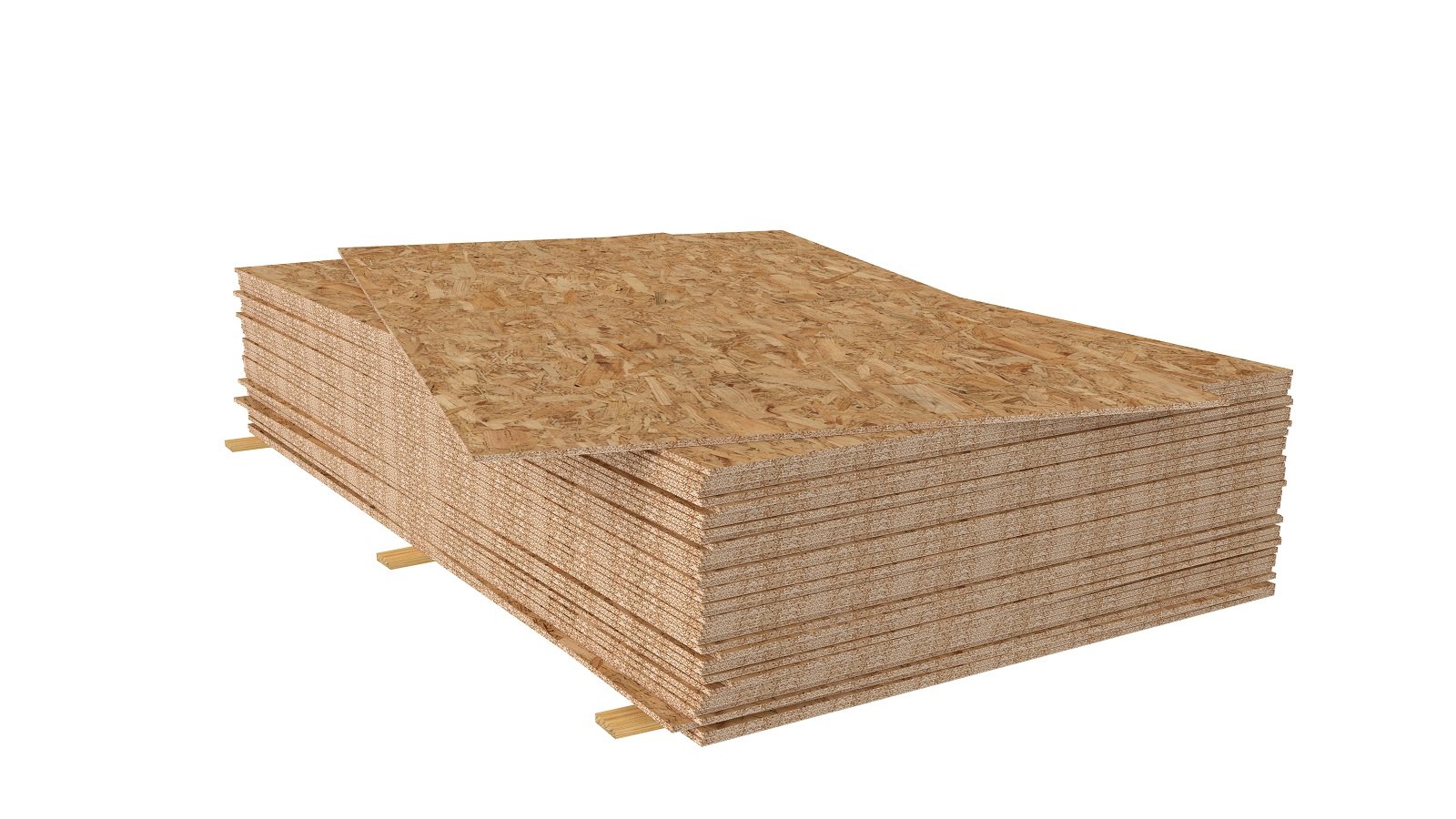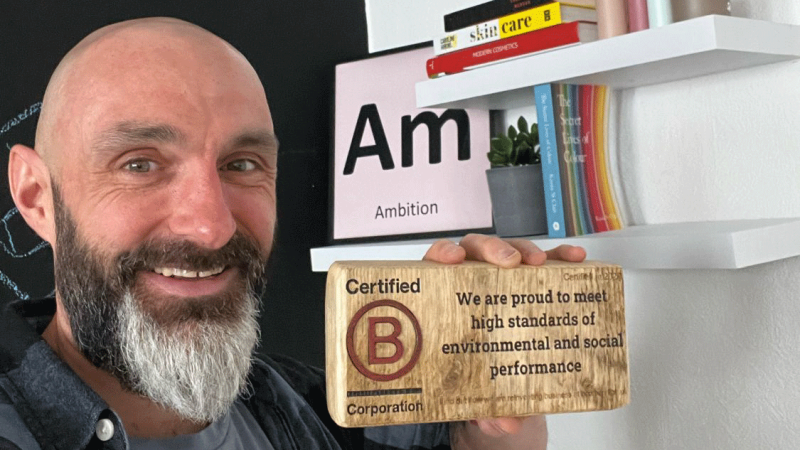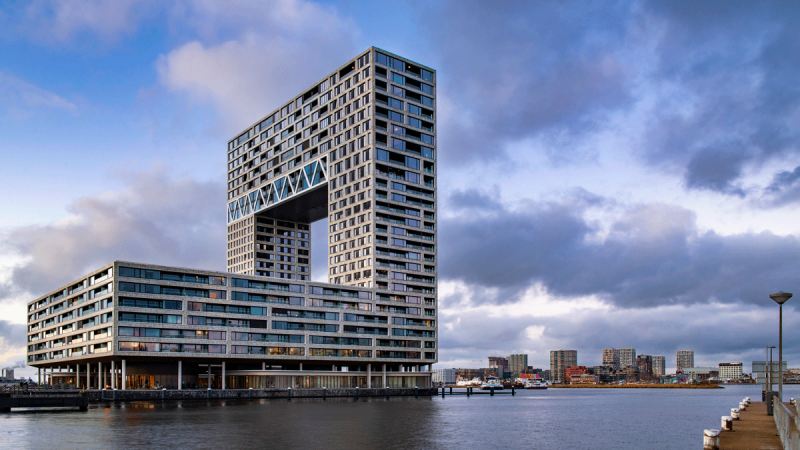When a company that manufactures wood-based building material was hit by a fire, which could have been the end of the story. But instead, things took a different path.
Tolko recently celebrated its 65th anniversary, alongside three generations of the Thorlakson family instilling their people-based values and beliefs into every division of the company. For those 65 years Tolko has manufactured wood-based building materials, using that as a platform to focus on career development, youth, diversity, and inclusion while driving innovation, geographic and product expansion with excellent customer service, community investment, and Indigenous partnerships.
“We want to be a company that has the right people to deliver quality products sustainably to customers the world over,” says Fred Chinn, Tolko’s Vice President of Strand-Based Business. “And we’re just getting started.”
 Already the company has 15 manufacturing divisions spread across British Columbia, Alberta & Saskatchewan in Canada, as well as Louisiana, Mississippi, and Alabama in the USA, and exports to 14 countries around the world. Tolko offers standard lumber, plywood and OSB alongside its speciality Engineered Wood Products that cover a large spectrum of the market’s needs. That entire product range is underpinned by the firm’s value of sustainability, as demonstrated in the company’s planting of 34.6 million trees every year.
Already the company has 15 manufacturing divisions spread across British Columbia, Alberta & Saskatchewan in Canada, as well as Louisiana, Mississippi, and Alabama in the USA, and exports to 14 countries around the world. Tolko offers standard lumber, plywood and OSB alongside its speciality Engineered Wood Products that cover a large spectrum of the market’s needs. That entire product range is underpinned by the firm’s value of sustainability, as demonstrated in the company’s planting of 34.6 million trees every year.
Perhaps the crown jewel among Tolko’s products is its Oriented Strand Board (OSB) Division. OSB, or chipboard as people outside the industry call it, is used everywhere from flooring to wall sheathing and roofing panels, as well as a range of other products. Tolko has three OSB plants, two in Alberta and one in Saskatchewan Canada, to provide the diversity and flexibility in the product mix that Tolko’s marketing strategy requires.
Trial by Fire
Those plants have built a proud reputation on a foundation of quality and excellent customer service. But on May 20th, 2022, at the High Prairie Alberta plant, tragedy struck.
A thermal oil line failing on the main press at one of Tolko’s Alberta plants led to a significant fire which destroyed the entire 12-level, multi-opening press production line.
“The crews that were on at that time did an outstanding job at hitting all the emergency stops, triggering all the required fire systems, and quickly evacuating the facility,” Chinn tells us. “Everyone was quickly accounted for and removed from the site in a safe and orderly fashion; those who remained were professional and diligent in their efforts to help firefighters as they worked to extinguish the blaze.”
The fire was eventually extinguished, with no casualties and only one employee receiving a slight burn that they fully recovered from.
The plant was another matter. After only a few days, it became clear that the fire had warped the main frame of the press and the main building’s structural steel beams. The heart of an OSB Plant, the press, was a total loss. Most facilities like this have only one large press, so this loss meant the end of all production at the plant- potentially forever.
The town of High Prairie, with a population of only 2,500 people, relied on the plant’s operation for their livelihood, and this loss represented about one-third of Tolko’s OSB production capacity. The community and company were devastated by the disaster.
Rising Like the Phoenix
It was the kind of situation where a lot of businesses would literally cut their losses, but from the outset, Tolko’s ownership was committed to rebuilding.
“The VP of Human Resources and I flew to the site the day after the fire to tour the damage and met with all our employees and representatives of the municipal and regional offices,” Chinn recalls. “We reassured them that with their full support in the daunting tasks ahead, Tolko was committed to a rebuild.”
Even then, it was clear this would be no small feat. Immediately, the staff were put back to work in a major clean-up and demolition support effort. Damage assessments were completed. As well as losing the press, the building itself was severely damaged, a main transformer had failed, the office block was destroyed by water and there was extensive smoke and water damage throughout.
But if the task ahead was daunting, Chinn was equally impressed by the resolve of his staff.
 “The whole community demonstrated a strong commitment and a passion to see their plant up and running again,” he tells us. “Their positive attitudes and efforts were motivating and gave me the support to overcome every challenge we had ahead of us.”
“The whole community demonstrated a strong commitment and a passion to see their plant up and running again,” he tells us. “Their positive attitudes and efforts were motivating and gave me the support to overcome every challenge we had ahead of us.”
Every rebuild option was assessed. From the start, there were three options under consideration. These included taking apart the equipment piece by piece and having all the components rebuilt or replaced, looking at a decommissioned press at a shutdown facility and seeing if its components could be used or modified to work, or finally, ordering a brand-new replacement press.
With ongoing supply chain issues affecting businesses the world over, a new press could have taken in the region of three years to order, design, manufacture, deliver, install, and commission. Rebuilding and re-manufacturing the damaged components could take over two years.
And time was of the essence. Every day Tolko was out of commission, competitors were moving into its market space, and through all that time it would need to keep its employees working and supporting their families.
Help From a Surprising Quarter
Tolko’s Engineering Manager was working with the old press’s manufacturer, Dieffenbacher, to find a solution. While things looked desperate, they soon learned that there was a new, state-of-the-art Dieffenbacher CPS+ Continuous Press whose manufacturing was already over 90% complete. This plant was already on order to another company in Eastern Europe, but the outbreak of the war in Ukraine had put that order on hold indefinitely.
“This is a significantly different design that would give us additional flexibility in grade mix options in the future. We knew there would be some additional costs to transitioning the layout of the plant to this modern design, but we were interested to see what was possible,” Chinn says.
What followed was a deep dive into costs, engineering and installation timeline for the press, and this option was quickly revealed to be quicker and cheaper than any other available options.
Now, rather than three years, or two years, Tolko sees this plant re-entering production by Q4 of 2023. The old press has already been removed, the building structure has been replaced and major civil work is now underway for the new machinery.
“Our manufacturing and marketing strategy will be well supported with the enhanced flexibility that comes with the addition of the modern continuous press to our division,” Chinn says proudly. “Our ability to pivot grade mixes in our facilities will help ensure viable operations through all market conditions.”
The news has met with celebration from the local community and support from the government.
“We’re pleased to hear about the progress Tolko’s made toward returning their High Prairie mill to full operations,” says Nate Horner, Alberta’s forestry minister. “Forest companies like Tolko play a vital role in maintaining stable local jobs and supporting the wider regional economy. We look forward to seeing their rebuilding plans realised in the near future. Government stands by Alberta’s Forest industry partners to ensure a healthy and vibrant sector.”







